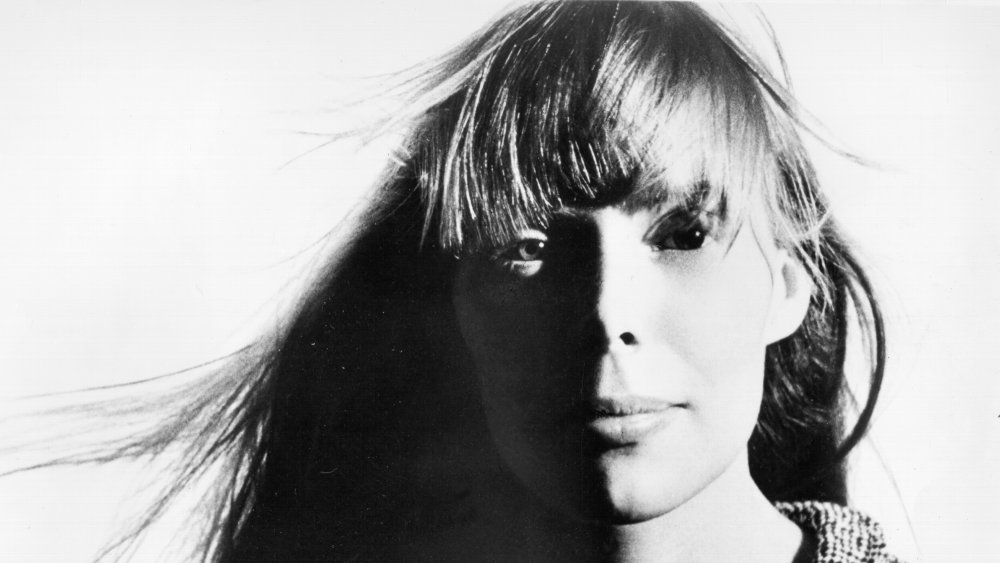Whatever Happened To Joni Mitchell?
When the folk music scene broke back in the 1960s, young singers and songwriters segued from covering old folk songs and began to use music as an expression of a collective angst and dissatisfaction with the way the world was running. Social justice, peace activism, and environmental awareness were just a few of the themes being expressed with original compositions, played on acoustic instruments. Songs sought awareness, and became highly personal and reflective.
One of the preeminent of those voices was Joni Mitchell, born Roberta Joan Anderson in Fort McLeod, Canada, in 1943, reports Biography. A childhood case of polio landed her in the hospital, where she first entertained by singing and performing for other patients. She went on to teach herself how to play the guitar, and spent some time in art college before heading for the folk music scene in the United States. She released her first album in 1968, an effort produced by David Crosby (she has since said he was "incompetent," according to Rolling Stone). Her 1969 album earned the first of her Grammy awards, and her third album was her first to go Gold. Her songs have been covered by (and become hits for) a number of artists, including Judy Collins and Crosby (there's that name again), Stills, Nash, and Young.
Mitchell's first album dropped in 1968
Like Bob Dylan, she branched out artistically, venturing into jazz and fusion, publishing poetry and artwork, continuing to record, continuing to produce artistically. Her voice was silenced for a time in 2015 when she suffered a brain aneurysm, as Vulture reported, but in February 2020 James Taylor, once romantically linked with Mitchell, hinted to The Guardian that she might be returning to the scene — "I think she's coming back musically," he said.
Besides the aneurysm, Mitchell has talked about another health issue, Morgellons disease, Billboard says. Fibers or small particles emerge from skin sores. The condition is widely debated as to whether or not it even exists; says the Mayo Clinic, "Some doctors recognize the condition as a delusional infestation and treat it with cognitive behavioral therapy, antidepressants, antipsychotic drugs and counseling," adding that further study is needed. Other medical experts characterize the condition as "delusional parasitosis," says People.
Her last album released in 2007.

